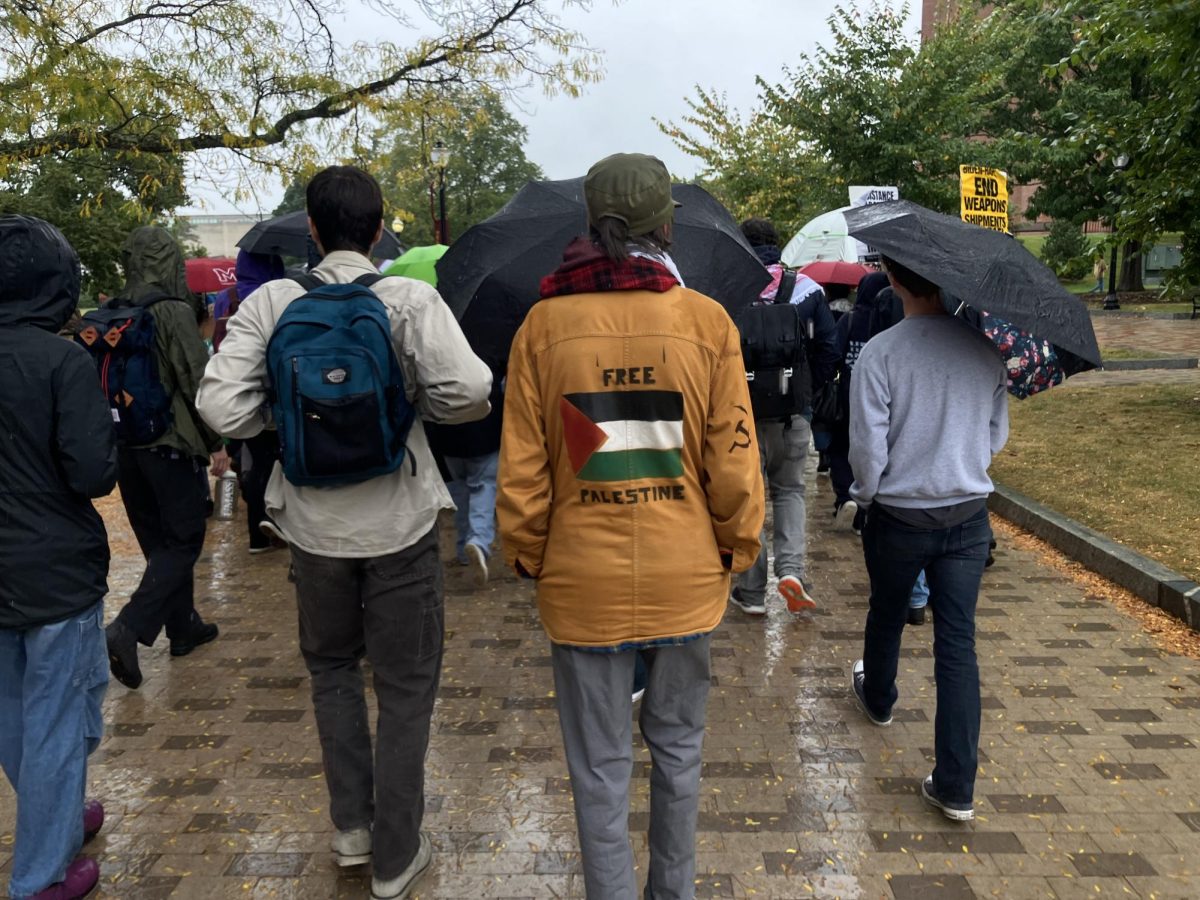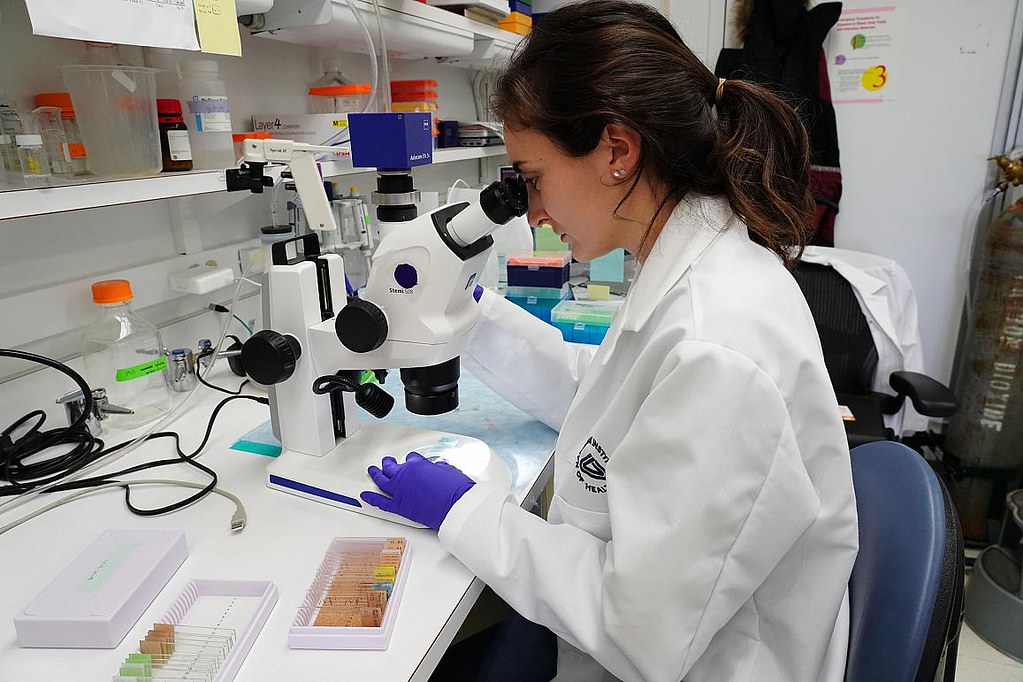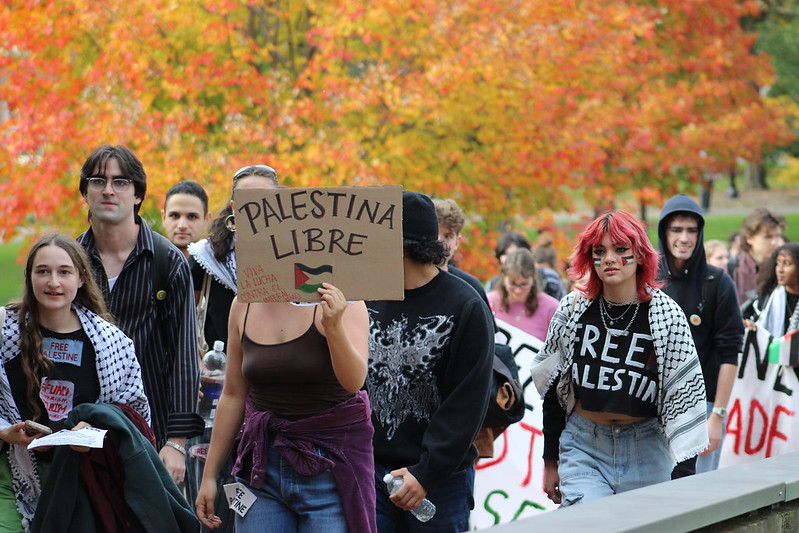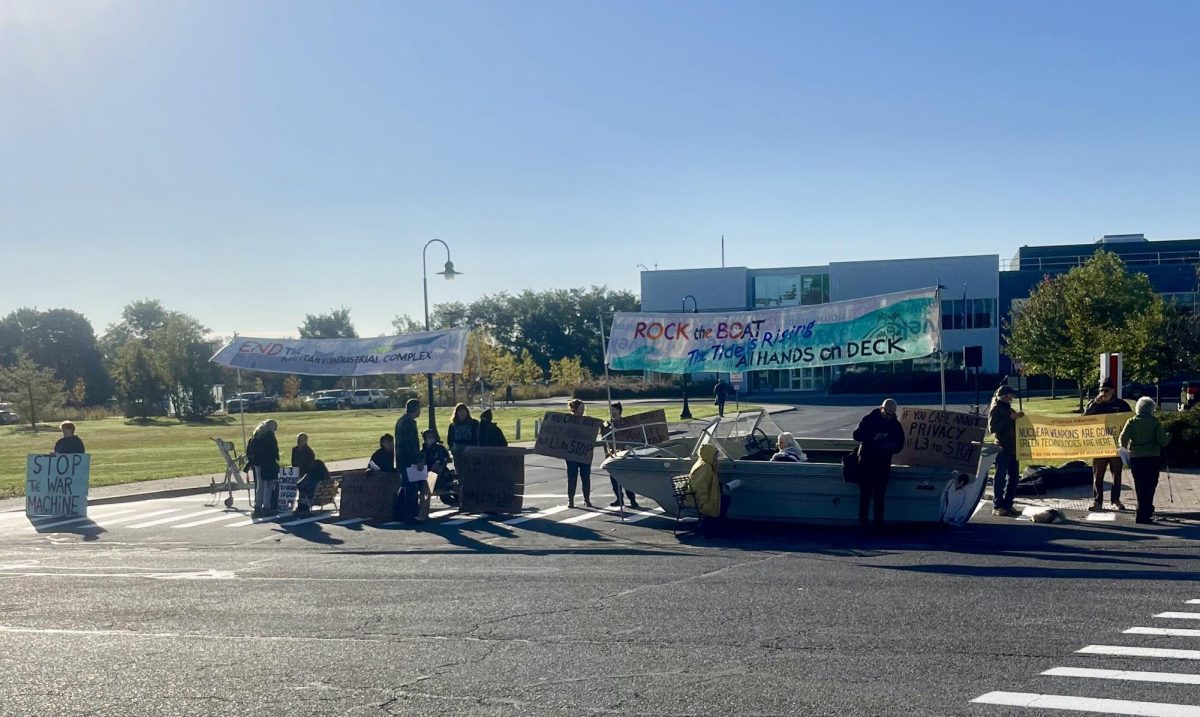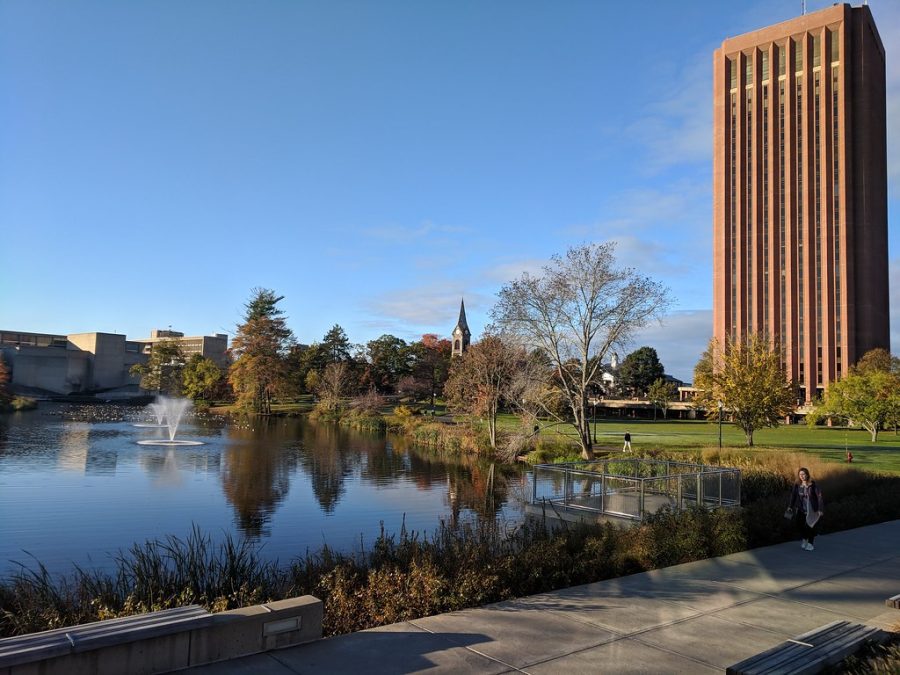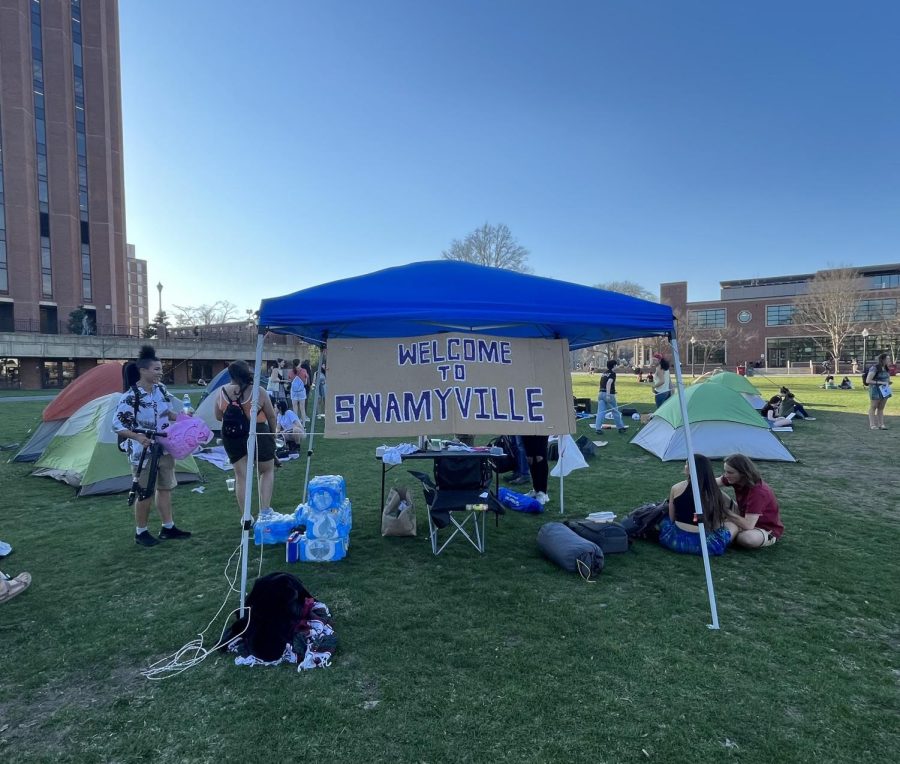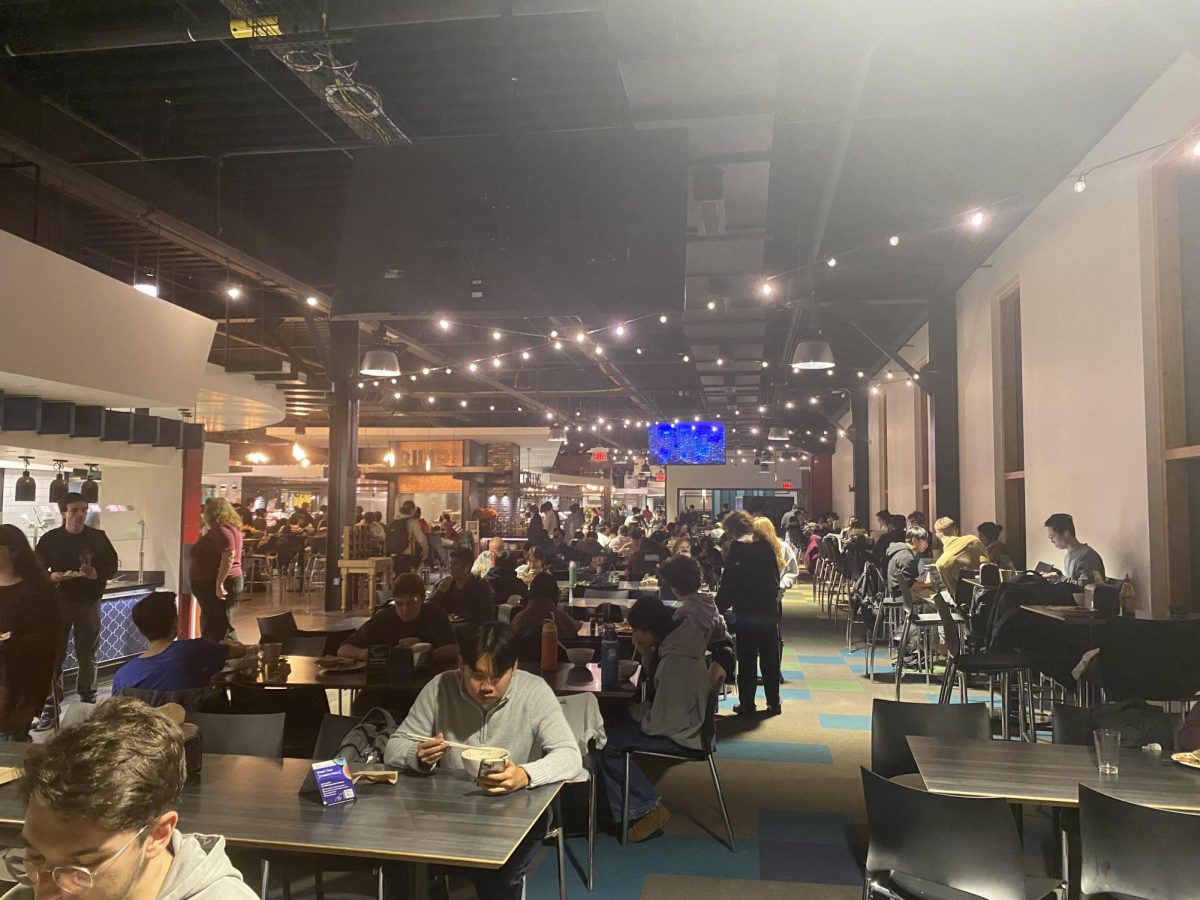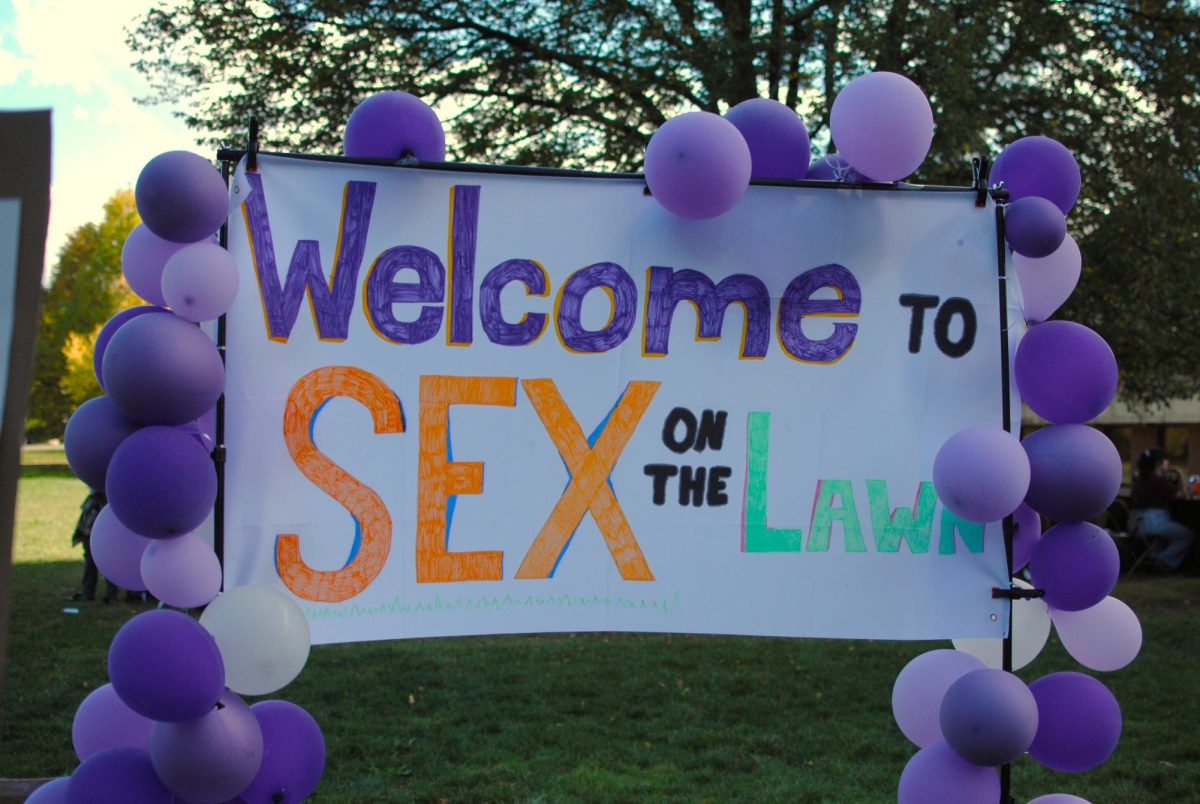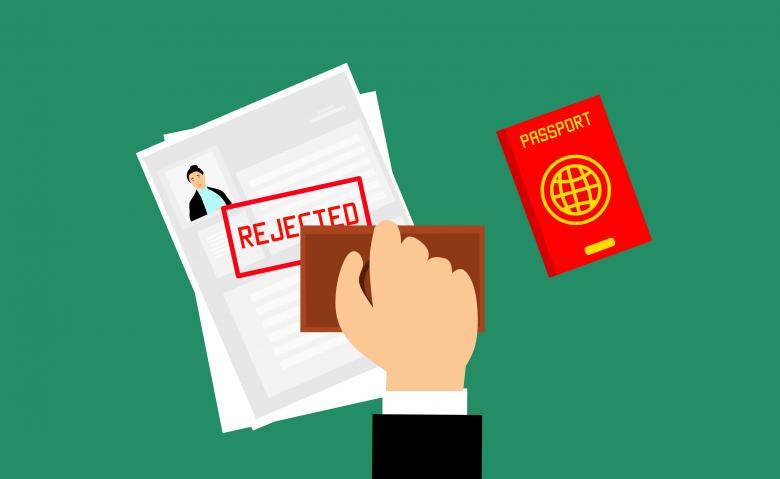Rain poured as leaders of the University of Massachusetts Amherst chapter of Students for Justice in Palestine (SJP) gathered in front of the Student Union at 3p.m. on Wednesday. Organizers toted megaphones, Palestinian flags, and signs reading “No US-Israeli War on Lebanon.” They waited as a crowd of about a dozen grew to around 40 before kicking off their first rally of the fall semester.
To SJP organizers, the timing of the rally was salient given Israel’s recent pager attack on Lebanon and Israel’s large-scale bombing campaign in the country that followed.
Former CIA director Leon Panetta recently described the pager attack as a form of “terrorism.”
Members of SJP leadership addressed the crowd through a megaphone, thanking them for attending despite the weather. They condemned Israel’s actions in Lebanon and called on the UMass system, particularly the private UMass Foundation, to divest from indirect holdings in military contractors, fossil fuels giants, and entities connected to illegal Israeli settlements in the occupied West Bank.
“We refuse to be complicit as our university financially supports organizations that are aiding and abetting Israeli war crimes,” Samar Haddad, a member of SJP leadership, told the crowd.
As speakers led demonstrators in pro-Palestinian chants, the crowd began to grow in size, with organizers calling on them to march towards the Whitmore Administrative Building.
Once demonstrators made their way to Whitmore, the crowd, now around 70 people, formed a circle around its entrance. In speeches to the crowd, organizers spoke to UMass’ ties to the defense industry citing recruiting events that included representatives from defense conglomerate RTX (formally Raytheon), which sells explosive ordinances to Israel.
“This is not just about Palestine, this is not just about Lebanon,” Ava, an SJP member who preferred to withhold her last name, told the crowd. She argued that that the UMass system’s tuition increases and lack of transparency when it comes to investments implicate all members of the UMass community.
The Wire caught up with Ava after the rally. She spoke to SJP’s strategy of getting more students involved in the 2024-2025 academic year.
“Organizing isn’t just mobilizing all the same people we had around,” she said. Ava says SJP hopes to attract students who may think “maybe this isn’t my cause, but I wanna support this because I understand how this is directly implicated to me,” adding that she thinks “that’s the importance of organizing in university spaces.”
The rally is SJP’s first action following an unprecedented wave of pro-Palestinian activism at UMass, and around the world since October 7th, 2023.
In May, a peaceful encampment protest on the UMass grounds was met with a violent crackdown by multiple local police departments as well as a militarized contingent of Massachusetts State Police officers. 134 demonstrators were arrested, putting UMass in the top five universities with the most arrests during the spring’s encampment wave. Chancellor Reyes, who initiated the police response, was met with no-confidence votes from faculty and students.
Over the summer, UMass pursued felony charges against two SJP members who have since graduated. Following backlash, the university dropped the charges.
Reyes and his administration have since prepared for another semester of high-profile protests, having recently released a report recommending changes to UMass’s protest policies. The report, which was drafted with input from students and faculty, recommends narrowing the definition of a “structure” to include items such as a “platform, bin, fence, sign, flagpole, or the like.”
The university justified their response to the May encampment by pointing to the university’s land use policy which prohibits “structures.” If the recent recommendations are to be passed, the university would be able to apply this narrower definition of a “structure” to future demonstrations.
Organizers who spoke to the Wire at an SJP meeting last week said they aren’t adapting their strategy if the new recommendations pass through the Board of Trustees.
Previous SJP demonstrations have typically been met by counter protestors, which wasn’t the case on Wednesday. Some students and faculty have even been targeted by the shadowy pro-Israel group Canary Mission, which catalogues activists in a database of “individuals and organizations that promote hatred of the USA, Israel and Jews on North American college campuses and beyond,” according to their website. The organization has profiled UMass student and faculty activists, publishing photos of them on their website.
Anya Epstein, an SJP leader, spoke to the risks associated with pro-Palestinian organizing. “People get stalked and harassed online,” Epstein said, “but at the protests [counter protestors] are mostly just a nuisance.”
UMass is currently being investigated by the Department of Education following a discrimination complaint by advocacy group Palestine Legal for their handling of alleged stalking and harassment of former SJP leaders by pro-Israel students.
When asked what lessons SJP is learning from last year, Ava claims the group remains focused on “continued pressure [and] continued political education.” She said “expanding outwards,” is a major goal for the organization this academic year.
“We’re not just saying disclosure and divestment because it sounds good as a chant,” Ava said. “We’re saying that because that’s what we need. That’s what we demand.”

